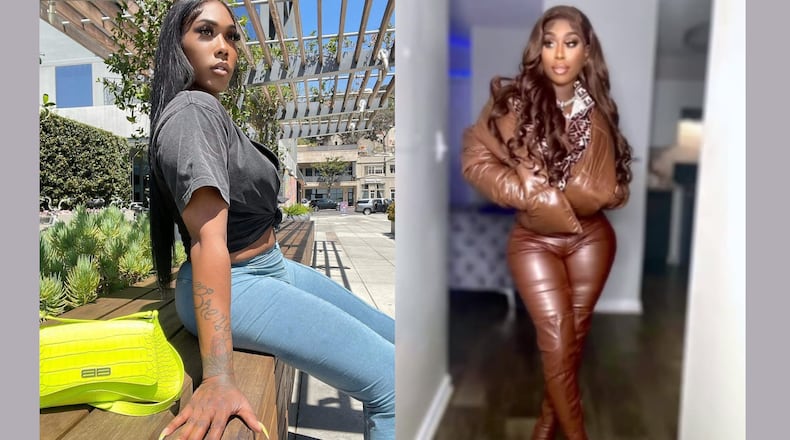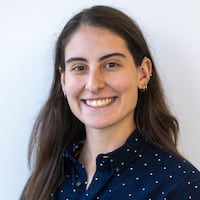Rasheeda Williams, better known to her community as Koko Da Doll or Hollywood Koko, was a positive force and aspiring artist paving the way for others. Ashley Burton, a hairstylist, was a trendsetter who could curl like no other.
Both were Black transgender women gunned down in the past two weeks in separate incidents in southwest Atlanta. Little is known about a third victim, another trans woman, shot in another part of the city earlier this year.
The three shootings have prompted questions among many in the trans community, who fear the rash of violence is evidence of rising anti-trans sentiment in Atlanta and believe the incidents were motivated by hate. While all three remain under investigation, police said Thursday they have not uncovered anything that indicates they were hate crimes, and none appears to be random.
But for the trans community, three shootings in such close proximity are reason enough to heighten anxiety.
“It keeps the fear alive. It keeps the fear going,” Rahkel Henry, 47, a hairstylist, faith leader and fellow trans woman who has lived in Atlanta for 22 years told The Atlanta Journal-Constitution on Friday. “So just when you think you can breathe because you hadn’t heard about another trans woman being killed, you can’t. Because it happens again.”
Williams, 35, was found dead shortly before 11 p.m. Tuesday at the Holmes Plaza on Martin Luther King Jr. Drive. In surveillance footage confirmed by Atlanta police of the moments leading to Williams’ death, a man wearing a Falcons jersey could be seen walking behind her.
Exactly one week earlier, Burton, 37, was killed hours before dawn at the City Park Atlanta apartments on Fairburn Road. In acknowledging their deaths this week, Atlanta police highlighted a third instance of violence against a trans woman, another shooting Jan. 9 at a mixed-use building on Highland Avenue.
That 26-year-old woman survived.
In their statement, Atlanta police said they share the public’s concern regarding the recent attacks and are exploring all possible motives.
“We understand some acts of violence bring about legitimate concerns of whether the incident was motivated by hate,” the police department said. “Our investigators have not found any indication the victim(s) were targeted for being transgender or a member of the LGBTQ+ community.”
Fear of violence is a constant for many in the transgender community, said Letoya Basquiat, 40, a friend of Williams who was born and raised in Atlanta and mentored her through her transition. Roughly 5% of Atlanta’s adult population identify as LGBTQ, making the city’s queer community one of the largest in the U.S., according to a March 2021 report from the Williams Institute at the UCLA School of Law.
Despite this, Basquiat fled Atlanta for a different state on the day after Williams was killed. She said she feared for her life.
“It’s nerve-racking, you don’t know who to trust,” Basquiat said. “People just look at us like a fetish and then just want to get rid of us.”
Williams’ career was just starting to take off. She was featured in an award-winning documentary, “Kokomo City,” which premiered at the Sundance Film Festival in January, and was getting ready to drop a music album.
She arrived at Sundance with the clothes on her back, a backpack full of coins and a smile on her face, said her friend and “Kokomo City” co-star Daniella Carter.
“She was on her way to becoming the star that this world deserved to experience,” Carter said. “But unfortunately, someone selfish took her life. They didn’t understand that when you took her life, you took her out of so many other people’s lives, the people who needed her love, who needed her support.”
Police have shed little light on the circumstances surrounding Williams’ death. In Burton’s case, police believe a dispute inside an apartment preceded the shooting. She was found dead at about 4:30 a.m. April 11 lying in a second-floor breezeway, according to police.
Like Williams, Burton was a star on the rise, said her mother Emma Jean Burton. She was building a hairstyling empire in Atlanta and was pouring her heart into the business.
“People told me that Ashley curled hair like no other,” her mother said. “They said they couldn’t get anybody to get their hair to stay the way Ashley did it.”
Her brother Patrick Burton added that “a lot of people had to go to school for sew-ins, but with Ashley it was a talent, it was a gift.” She got her start doing hair in a room at her mother’s home in 2011. Over time, she made a name for herself in South Carolina, and later in Augusta before trying to put down roots in Atlanta.
Even in her death, her mother said she is still leading the way for others.
“People want to be just like her,” she said.
From 2020-2022, at least seven gender-fluid or transgender people were killed across Georgia, according to the Human Rights Campaign. By comparison, two were killed in the Atlanta metro area within the past two weeks. The three local shootings were the only known incidents of violence against transgender people in the city this year, but at least 38 trans people across the nation were fatally shot last year, the organization said.
“As a Black trans woman, it’s terrifying,” Toni-Michelle Williams said. “I am terrified for our safety and livelihood. We feel isolated in this fight and exhausted at how much fighting we have to do to be able to live.”
An Atlanta resident, Toni-Michelle Williams serves as the executive director of SnapCo., an organization that works to promote safety and raise the political profile of the trans community. In her experience, crimes against transgender people are always fueled by hate.
“You cannot tell me as a Black trans woman that my stories and my expertise and this body and this lifestyle and this choice that I’m making for myself, that I haven’t experienced this kind of terror or that reality of people vocally saying to me that they want to kill me or shoot me,” she said.
Atlanta police said the violent crimes remain the department’s top priority, with investigators actively working on each case.
“We are committed to identifying everyone involved in these incidents and bringing those responsible to justice,” police said.
The Latest
Featured



